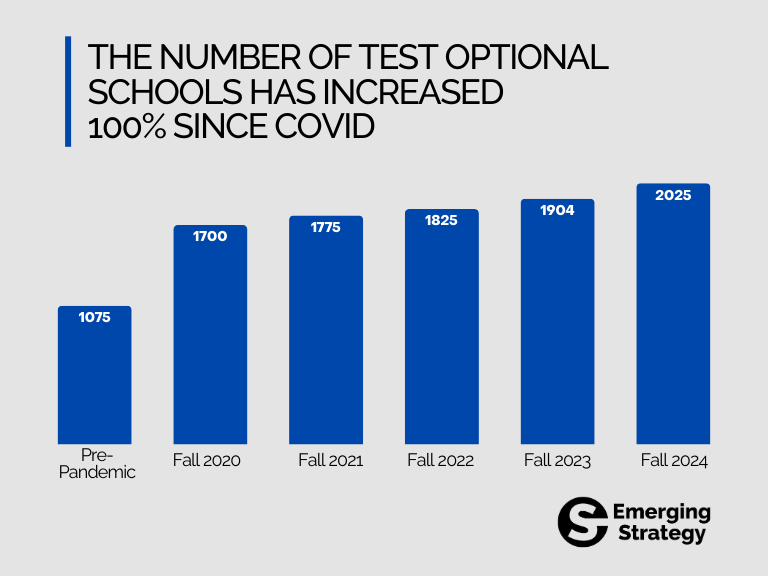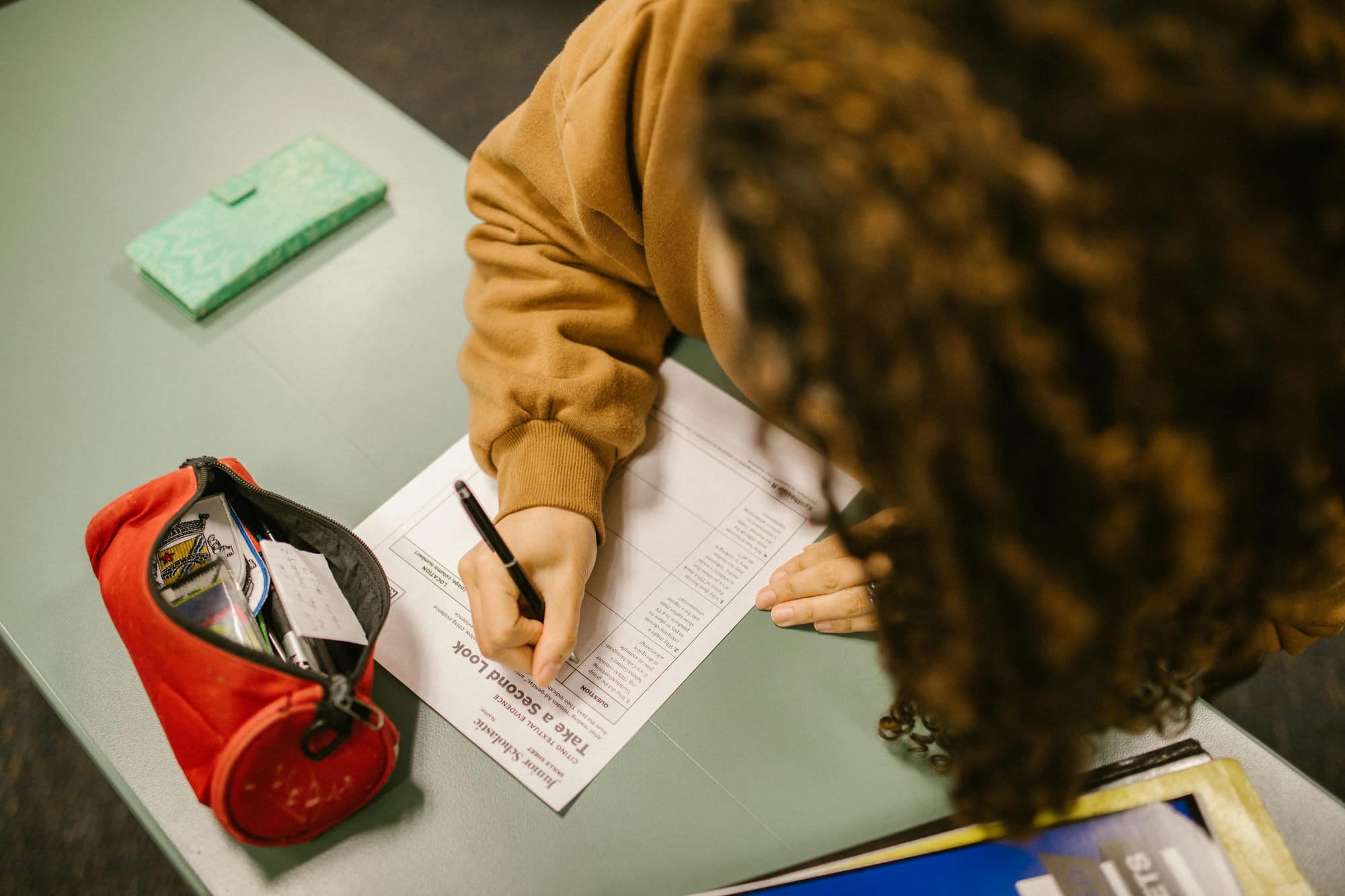The standardized testing industry is retreating from a fight it cannot afford to lose. Legacy players like The College Board, ACT, and ETS appear hesitant to challenge the prevailing narrative that standardized tests are inherently biased or ineffective. This reluctance has resulted in administrators leaving test-optional policies widely in place since the pandemic, with college admissions officers struggling to evaluate students equitably and efficiently, while disruptors and edtech innovators eye the space with growing interest.

The Decline in Testing: A Problem for Admissions Officers
Critics of standardized testing have called attention to its flaws—bias, inequity, and an overemphasis on learning for the test. These critiques, coupled with the rise of test-optional and test-free policies, have resulted in:
- Revenue Declines: ACT reported a 35% drop in testing service revenue in 2023. ETS has faced financial challenges, including multiple rounds of layoffs in recent years.
- Volume Drops: ACT’s testing volume fell from 1.8 million in 2017 to 1.4 million in 2023. SAT volume has also fallen from 2.2 million for the class of 2019 to 2 million for the class of 2024. This is despite improvements in volume post-pandemic, partly attributed to initiatives like SAT School Day, which allows students to take the test during school hours. In the class of 2024, 68% of SAT takers utilized this option.
Despite these trends, the core need for standardized assessment remains critical. Admissions teams face the daunting task of interpreting thousands of high school transcripts from diverse educational systems without a consistent benchmark. This process, if left subjective, risks rewarding those with the time and money to craft polished applications and essays, further entrenching inequities in college admissions.
Reconsidering recent test-optional policies, and in Dartmouth's case, based on rigorous socio-economic research, some top-tier undergraduate institutions are now reverting to requiring tests:
- Stu Schmill, Dean of Admissions and Student Financial Services, MIT
- Logan Powell, Associate Provost for Enrollment and Dean of Undergraduate Admission, Brown University
- Lee Coffin, Dean of Admissions and Financial Aid, Dartmouth College
If you think The College Board, ACT, and ETS would issue press releases to support these findings, you would be wrong. Not a peep from anyone in their leadership. What's going on?
The Case for Defending Meritocracy
Instead of conceding the battlefield to their nemesis FairTest, legacy players should champion the principle of meritocracy. Tests may need improvement, but abandoning assessments altogether undermines fairness and transparency. In mission-critical environments like the military or aerospace, rigorous assessments are essential. Higher education should be no different. Rather than discarding standardized testing, focus should shift to improving schools and learning environments to ensure equitable preparation for all students.
Innovators and Emerging Players
While the legacy players maintain a studied silence on their main product and market, several emerging companies are innovating in the standardized testing space for college admissions. These include:
- MeasureOne: Utilizes AI to analyze academic data for college admissions, potentially reducing reliance on standardized test scores.
- Duolingo English Test: An adaptive test gaining acceptance as an alternative to TOEFL and IELTS for international students.
- Kira Talent: Offers video-based assessments for college admissions, focusing on soft skills and personality traits.
These and other emerging players are addressing key issues by:
- Assessing Broader Skills: Focusing on problem-solving, critical thinking, and soft skills that traditional tests may not capture.
- Improving Accessibility: Offering lower-cost, more flexible testing options.
- Leveraging Technology: Using AI, adaptive testing, and game-based assessments to provide more comprehensive evaluations.
While these disruptors have not yet displaced traditional standardized tests like the SAT and ACT, their innovations highlight a shift in how educational assessments may evolve in the future.
For investors, opportunities lie in the broader edtech and assessment landscape. Companies like Examity, which focus on secure online test administration, have raised significant funding, indicating strong interest in this space.
Outside the U.S., the global demand for assessment-based admission to higher education remains strong and the principle of standardized assessment remains relatively uncontroversial.
A Call to Action for Legacy Providers
Legacy providers must act decisively to remain relevant. Here’s how they can adapt:
- Reframe the Narrative: Highlight data supporting the predictive validity of tests and emphasize their role in ensuring equitable admissions. Take this fight to Washington D.C. and lobby the new administration to take a stand in favor of standardized testing.
- Collaborate with Disruptors: Partner with edtech companies to modernize their offerings.
- Expand Globally: Focus on regions where standardized testing remains a cornerstone of education.
What’s Next?
The standardized testing industry for university admission isn’t dead, but it is gasping for air. Legacy players must stop retreating and start speaking up, and innovating. The legacy players' recent leadership has seemed more comfortable fading quietly than picking a fight. By defending meritocracy and embracing modernization, they can reclaim their relevance in education. For disruptors and investors, the future of higher education admission assessments is a space ripe for transformation.
Want to understand how these trends impact your business? Contact Emerging Strategy for a data-driven analysis and actionable insights into the evolving testing landscape.







